Plastic cutlery, such as forks, knives and spoons, are widely used. They are typically made of polypropylene, which is resistant to high temperatures and acids. Plastic eating utensils are easy to clean and generally do not cause environmental harm if handled properly. However, long-term use can contribute to environmental pollution. Alternatives can be utensils made of wood, bamboo or stainless steel.
PLASTIC FORK
A plastic fork is a disposable eating utensil primarily used for eating. The fork is usually made of plastic, which is easily cleaned and lightweight. Plastic forks are often used in restaurants, events, and festivals. Plastic forks are usually disposable products, but there are also recyclable plastic forks. The advantages of plastic forks include that they are easily transported, cleaned, and usually cheaper than wooden forks. The disadvantages of plastic forks include that they are not environmentally friendly.
PLASTIC SPOON
A plastic spoon is a disposable eating utensil primarily used for eating. The spoon is usually made of plastic material, which is easily cleaned and lightweight. Plastic spoons are often used in restaurants, events, and festivals. Plastic spoons are usually disposable products, but there are also recyclable plastic spoons. The advantages of plastic spoons include that they are easily transported, cleaned, and usually cheaper than wooden spoons. The disadvantages of plastic spoons include that they are not environmentally friendly and their long-term use is generally not recommended.
PLASTIC KNIFE
A plastic knife is a disposable eating utensil primarily used for eating. The knife is usually made of plastic, which is easily cleaned and lightweight. Plastic knives are often used in restaurants, events, and festivals because they are easily transportable and stored. Plastic knives are typically single-use products, but there are also recyclable plastic knives. The advantages of plastic knives include being easily cleaned and generally cheaper than dedicated knives. The disadvantages of plastic knives include being not environmentally friendly and not recommended for long-term use. Additionally, plastic knives are not as strong as wooden or steel tools, making them unsuitable for heavy and constant use and not as good at cutting food.
PACKAGED EATING UTENSIL
Packaged plastic eating utensils are eating utensils that are pre-packaged and used primarily for travel, weddings, or other events, as well as corporate events. Packaged plastic eating utensils are usually made of plastic, which is easily cleaned and lightweight. Packaged plastic eating utensils are typically single-use products, but there are also recyclable plastic eating utensils. The advantages of packaged plastic eating utensils include being easily transportable and stored, and generally cheaper than packaged wooden eating utensils. The disadvantages of packaged plastic eating utensils include not being environmentally friendly and not recommended for long-term use. Using packaged plastic eating utensils can be a good solution for quickly providing eating utensils, but for long-term use and sustainability, it is better to find other alternatives.
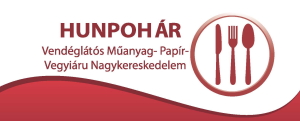
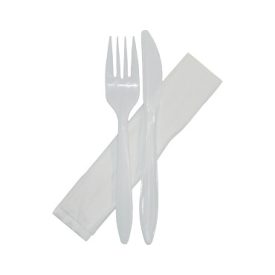
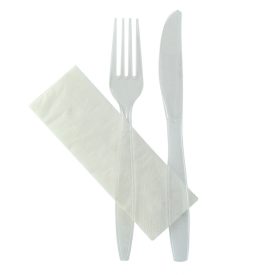
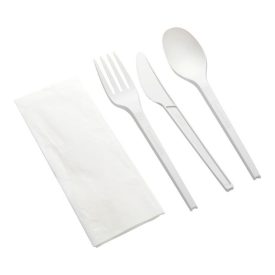
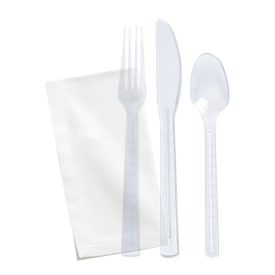

![Kanál műanyag FEHÉR [ 50 db/cs ] [ 40 cs/# ] PRIME Kanál műanyag FEHÉR [ 50 db/cs ] [ 40 cs/# ] PRIME](https://webshop.hunpohar.hu/img/65751/12000078/275x275,r/12000078.jpg?time=1732027026)
![Kanál műanyag fehér LUX [ 100 db/cs ] többször használható Kanál műanyag fehér LUX [ 100 db/cs ] többször használható](https://webshop.hunpohar.hu/img/65751/Wsh02/275x275,r/Wsh02.jpg?time=1741328452)
![Spoon plastic WHITE superior [50 pcs/pck] [40 pck/ctn] reusable Spoon plastic WHITE superior [50 pcs/pck] [40 pck/ctn] reusable](https://webshop.hunpohar.hu/img/65751/1567/275x275,r/1567.jpg?time=1732027026)
![Kanál műanyag Fekete [ 100 db/cs ] [ 10 cs/# ] többször használható Kanál műanyag Fekete [ 100 db/cs ] [ 10 cs/# ] többször használható](https://webshop.hunpohar.hu/img/65751/Q1024BHRE/275x275,r/Q1024BHRE.jpg?time=1730380522)
![Spoon plastic BLACK Superior [50 pcs/pck] [40 pck/ctn] reusable Spoon plastic BLACK Superior [50 pcs/pck] [40 pck/ctn] reusable](https://webshop.hunpohar.hu/img/65751/0941/275x275,r/0941.jpg?time=1684170532)
![Kanál műanyag VÍZTISZTA [ 100 db/cs ] [ 10 cs/# ] többször használható Kanál műanyag VÍZTISZTA [ 100 db/cs ] [ 10 cs/# ] többször használható](https://webshop.hunpohar.hu/img/65751/Q1024THRE/275x275,r/Q1024THRE.jpg?time=1730380522)
![Spoon plastic TRANSPARENT Superior [50 pcs/pck] [40 pck/ctn] reusable Spoon plastic TRANSPARENT Superior [50 pcs/pck] [40 pck/ctn] reusable](https://webshop.hunpohar.hu/img/65751/0241/275x275,r/0241.jpg?time=1682094678)
![Kanál Prémium Extra Erős Többször használható
Műanyag Fehér
[50db/cs] [20 cs/#] Kanál Prémium Extra Erős Többször használható
Műanyag Fehér
[50db/cs] [20 cs/#]](https://webshop.hunpohar.hu/img/65751/1509/275x275,r/1509.jpg?time=1739375769)
![Kanál WPC Superior [ 50 db/cs ] [ 20 cs/# ] Kanál WPC Superior [ 50 db/cs ] [ 20 cs/# ]](https://webshop.hunpohar.hu/img/65751/1512/275x275,r/1512.jpg?time=1726566851)
![Kés műanyag fehér LUX [ 100 db/cs ] többször használható Kés műanyag fehér LUX [ 100 db/cs ] többször használható](https://webshop.hunpohar.hu/img/65751/Whk02/275x275,r/Whk02.jpg?time=1748820731)
![Kés műanyag fehér LUX[ 50 db/cs ] [ 40 cs/# ] többször használható Kés műanyag fehér LUX[ 50 db/cs ] [ 40 cs/# ] többször használható](https://webshop.hunpohar.hu/img/65751/0250/275x275,r/0250.jpg?time=1748820732)
![Knife plastic WHITE [50 pcs/pck] [40 pck/ctn] reusable Knife plastic WHITE [50 pcs/pck] [40 pck/ctn] reusable](https://webshop.hunpohar.hu/img/65751/1505/275x275,r/1505.jpg?time=1732027026)
![Kés műanyag FEHÉR [ 40 db/cs ] [ 25 cs/# ] PRIME Kés műanyag FEHÉR [ 40 db/cs ] [ 25 cs/# ] PRIME](https://webshop.hunpohar.hu/img/65751/1712/275x275,r/1712.jpg?time=1732027027)
![Knife plastic BLACK Superior [50 pcs/pck] [40 pck/ctn] reusable Knife plastic BLACK Superior [50 pcs/pck] [40 pck/ctn] reusable](https://webshop.hunpohar.hu/img/65751/0942/275x275,r/0942.jpg?time=1683883830)
![Knife plastic TRANSPARENT Superior [50 pcs/pck] [40 pck/ctn] reusable Knife plastic TRANSPARENT Superior [50 pcs/pck] [40 pck/ctn] reusable](https://webshop.hunpohar.hu/img/65751/0252/275x275,r/0252.jpg?time=1684170531)
![Kés Prémium Extra Erős Többször használható
Műanyag Fehér
[50db/cs] [20 cs/#] Kés Prémium Extra Erős Többször használható
Műanyag Fehér
[50db/cs] [20 cs/#]](https://webshop.hunpohar.hu/img/65751/MC21/275x275,r/MC21.jpg?time=1748820731)
![Kés WPC Superior [ 50 db/cs ] [ 20 cs/# ] Kés WPC Superior [ 50 db/cs ] [ 20 cs/# ]](https://webshop.hunpohar.hu/img/65751/1513/275x275,r/1513.jpg?time=1726566851)
![Kiskanál FEHÉR műanyag superior [ 50 db/cs ] [ 40 cs/# ] többször használható Kiskanál FEHÉR műanyag superior [ 50 db/cs ] [ 40 cs/# ] többször használható](https://webshop.hunpohar.hu/img/65751/1667/275x275,r/1667.jpg?time=1683048687)
![Little spoon Transparent plastic Superior [ 50 pcs/pck ] [ 40 pck/# ] reusable Little spoon Transparent plastic Superior [ 50 pcs/pck ] [ 40 pck/# ] reusable](https://webshop.hunpohar.hu/img/65751/1287/275x275,r/1287.jpg?time=1684737131)
![Neon Ice Cream spoon [ 500 pcs/pck; 10pck/# ] Neon Ice Cream spoon [ 500 pcs/pck; 10pck/# ]](https://webshop.hunpohar.hu/img/65751/1574/275x275,r/1574.jpg?time=1681306239)

![Szívószál koktél vegyes színű Öko egyesével csomagolt papír[ 500 db/cs ] [ 10 cs/# ] Szívószál koktél vegyes színű Öko egyesével csomagolt papír[ 500 db/cs ] [ 10 cs/# ]](https://webshop.hunpohar.hu/img/65751/q0821wfsc/275x275,r/q0821wfsc.jpg?time=1752771608)

![Villa FEKETE műanyag [ 100 db/cs ] [ 10 cs/# ] többször használható Villa FEKETE műanyag [ 100 db/cs ] [ 10 cs/# ] többször használható](https://webshop.hunpohar.hu/img/65751/Q1023BHRE/275x275,r/Q1023BHRE.jpg?time=1730380804)

![Villa műanyag FEHÉR LUX
[ 100 db/cs ] [ 20 cs/# ]
többször használható Villa műanyag FEHÉR LUX
[ 100 db/cs ] [ 20 cs/# ]
többször használható](https://webshop.hunpohar.hu/img/65751/Lux0529/275x275,r/Lux0529.jpg?time=1737560069)
![Villa műanyag FEHÉR [ 50 db/cs ] [ 40 cs/# ] PRIME Villa műanyag FEHÉR [ 50 db/cs ] [ 40 cs/# ] PRIME](https://webshop.hunpohar.hu/img/65751/12000072/275x275,r/12000072.jpg?time=1732022269)
![Villa Prémium Extra Erős Többször használható
Műanyag Fehér
[50db/cs] [20 cs/#] Villa Prémium Extra Erős Többször használható
Műanyag Fehér
[50db/cs] [20 cs/#]](https://webshop.hunpohar.hu/img/65751/1510/275x275,r/1510.jpg?time=1739373521)

![Villa WPC Superior [ 50 db/cs ] [ 20 cs/# ] Villa WPC Superior [ 50 db/cs ] [ 20 cs/# ]](https://webshop.hunpohar.hu/img/65751/1514/275x275,r/1514.jpg?time=1726566851)